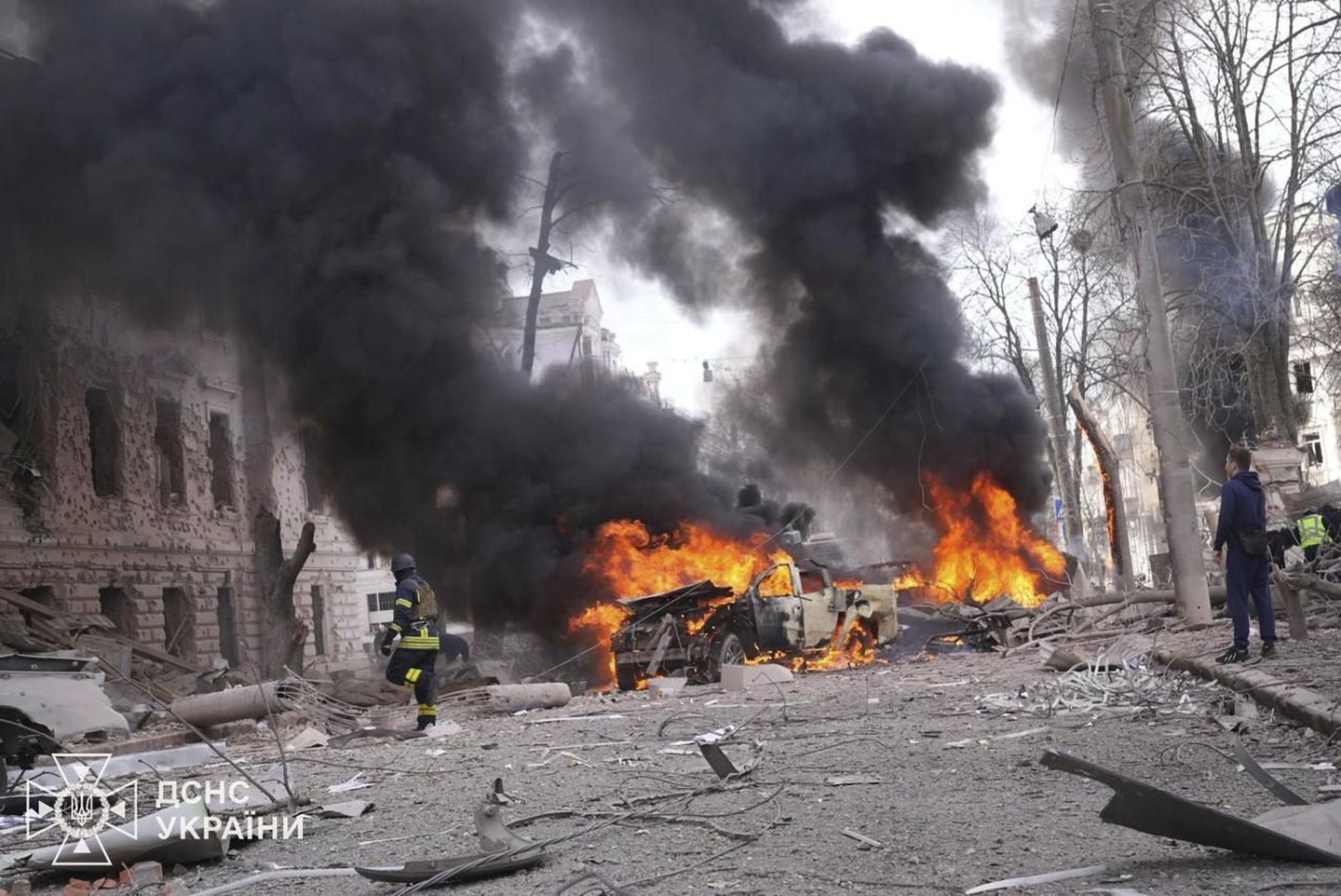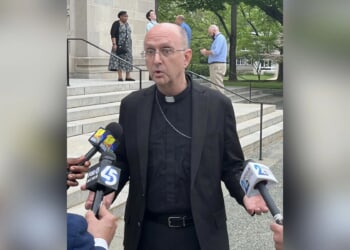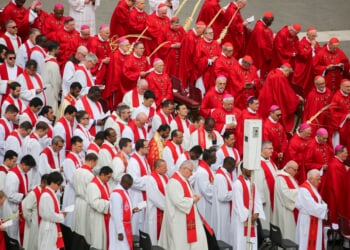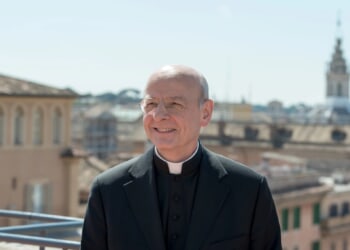
KYIV, Ukraine — The Trump administration is optimistic it can secure a fair peace deal between Russia and Ukraine.
In Ukraine, there is a much more cautious, perhaps even pessimistic view. Some observers believe that key Trump administration figures — including Middle East envoy Steve Witkoff, who has taken a lead role in negotiations with the Kremlin — appear far too deferential to Moscow.
That dim view of the administration’s ceasefire push, at least among some foreign policy specialists in Ukraine, centers on the belief that the U.S. will not exert the kind of pressure necessary on Russia to achieve a just, lasting peace agreement.
“Basically, Witkoff just translated the message from the Kremlin. And I cannot understand what he’s mediating, he’s essentially just transmitting whatever [Russian President Vladimir] Putin says,” said Alexander Khara, a former Ukrainian diplomat and foreign policy expert at the Center for Defense Strategies.
“We do not expect the Trump administration to exert any pressure on Russia,” Mr. Khara said. “I believe that the team in Washington believes that Ukraine is an obstacle to a reset, which is much more important to Trump than the peace and security of Ukraine, and the stability and security of Europe.”
The administration fiercely rejects that narrative. For his part, President Trump said recently he was “pissed off” at Mr. Putin for standing in the way of a peace deal. Secretary of State Marco Rubio condemned Russia’s Palm Sunday missile strike on the Ukrainian city of Sumy, calling it “horrifying.” And the administration reportedly is considering major economic sanctions or secondary tariffs targeting Russia’s energy exports, which represent the lifeblood of its economy.
After his recent meeting with Mr. Putin, Mr. Witkoff emphasized that the “key” to ending the war in Ukraine were the so-called “five territories.” Mr. Witkoff appeared to be referring to the Crimean peninsula, which was forcibly annexed by Russia in 2014, as well as to the partially occupied regions of Luhansk, Donetsk, Zaporizhzhia and Kherson.
But Mr. Witkoff argued that a potential deal could go much further than just the future of those territories.
“This peace deal is about the so-called ’five territories,’ but there’s so much more to it,” he told Fox News this week. “There’s security protocols. There’s no NATO, NATO, Article 5, there’s a lot of detail attached to it. It’s a complicated situation, rooted in some real problematic things happening between the two countries. And I think we might be on the verge of something that would be very, very important for the world at large.”
Mr. Witkoff also said that a peace deal with Moscow could offer a chance to “reshape the Russian-United States relationship through some compelling commercial opportunities,” a sentiment echoed this week by White House Press Secretary Karoline Leavitt.
“As Witkoff said last night, he believes that Russia wants to end this war and the president believes that as well,” she said. “There is incentive for Russia to end this war, perhaps that could be economic partnerships with the United States, but we need to see a ceasefire first.”
Mr. Witkoff’s latest claims have drawn a sharp rebuttal from the Ukrainian government, with President Volodymyr Zelenskyy himself appearing to tell Mr. Witkoff — without mentioning him by name — that Mr. Witkoff was “discussing matters beyond [his] mandate.”
“Ukraine is a sovereign state, and only the Ukrainian people can speak about its territories,” Mr. Zelenskyy said during a joint press conference with NATO Secretary General Mark Rutte. “And you know what our red lines are. We will never recognize any temporarily occupied territories as Russian.”
For Russia’s part, the negotiations have a long way to go. Kremlin spokesman Dmitry Peskov said this week that the Russian government did not yet see any “clear outlines” of an agreement with the U.S. on Ukraine, though he cautiously conceded that there was “political will” to pursue such talks.
“We hope for the best, that this work will yield positive results,” Mr. Peskov told the Russian state-run Tass News Agency. “At the moment, we would not speak precisely about any timeframes.”
Perhaps unsurprisingly, Moscow has not extended this professed goodwill to its besieged neighbor. On Sunday, multiple Russian missiles struck the busy center of the northeastern Ukrainian city of Sumy as residents were celebrating Palm Sunday and attending morning church services. The attack left 34 people dead, including children, and 119 injured, making it the deadliest of the year so far.
Those kinds of brutal attacks could make it harder for the U.S. to work with Russia at the negotiating table. And broadly speaking, Mr. Witkoff’s preferred approach in dealing with the Kremlin isn’t shared across the administration.
A number of senior officials — among them, Mr. Rubio, and the administration’s special envoy for Ukraine, retired Army Gen. Keith Kellogg — have urged the president to exercise caution in dealing with Mr. Putin and have voiced their skepticism about the Russians’ professed appetite for peace, according to recent reporting in the Wall Street Journal.
Analysts say it’s clear there are differences inside the administration on how to proceed.
“I believe that we have seen the emergence of different centers of thought about how best to approach this,” said Ned Price, a former intelligence officer and State Department spokesman during the Biden administration. “I think there are some within the administration, like Secretary of State Rubio or Keith Kellogg, who would like to take an approach that is fairly mainstream and reflective of broad bipartisan support, namely to stand on the side of those fighting for freedom and democracy.”


![NYC Tourist Helicopter Falls into Hudson River, Siemens Executive and Family Among Those Killed [WATCH]](https://www.right2024.com/wp-content/uploads/2025/04/NYC-Tourist-Helicopter-Falls-into-Hudson-River-Siemens-Executive-and-350x250.jpg)






![Green Day’s Cringe Trump Diss Ends in Fire and Evacuation [WATCH]](https://www.right2024.com/wp-content/uploads/2025/04/Green-Days-Cringe-Trump-Diss-Ends-in-Fire-and-Evacuation-350x250.jpg)
![Red Sox Fan Makes the ‘Catch of the Day’ with Unconventional ‘Glove’ [WATCH]](https://www.right2024.com/wp-content/uploads/2025/04/Red-Sox-Fan-Makes-the-‘Catch-of-the-Day-with-350x250.jpg)
![Bikini Clad Spring Breakers Prove Our Education System is Failing Students [WATCH]](https://www.right2024.com/wp-content/uploads/2025/03/Bikini-Clad-Spring-Breakers-Prove-Our-Education-System-is-Failing-350x250.jpg)





